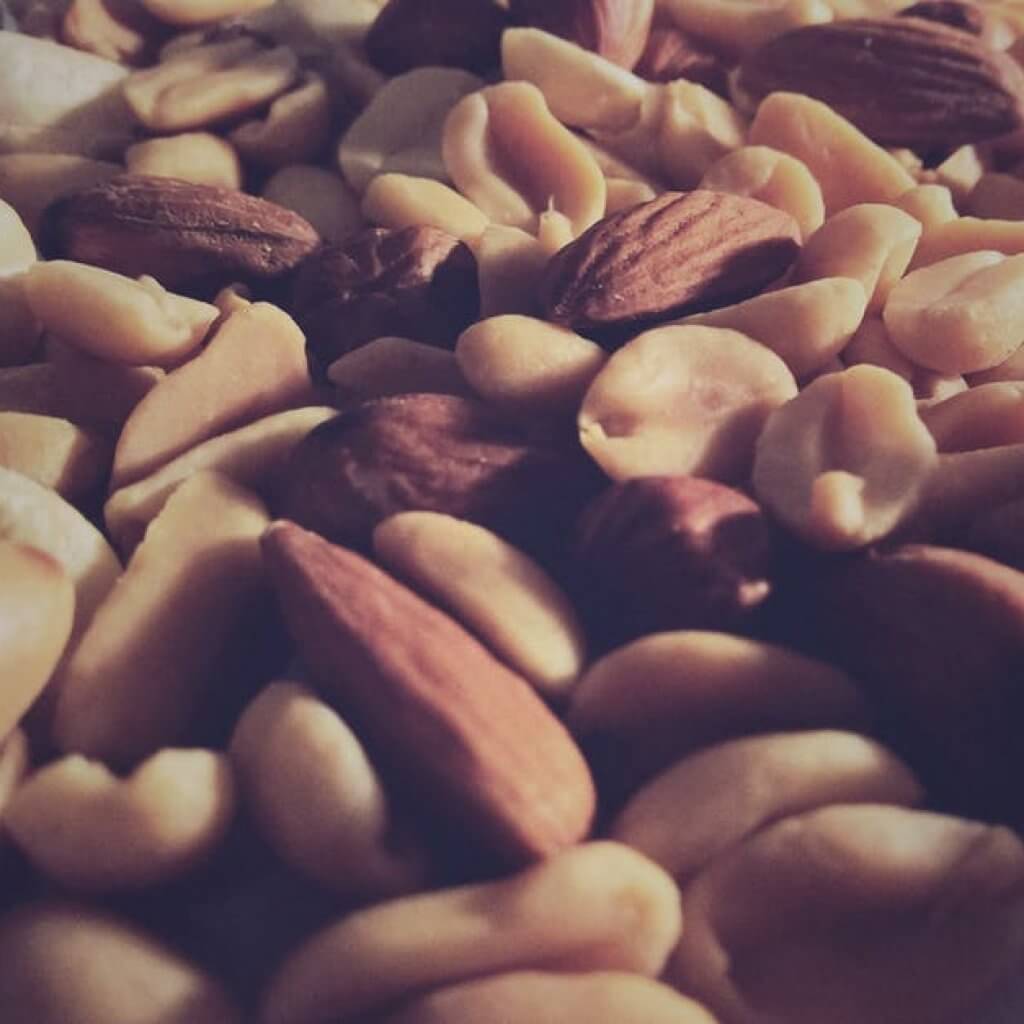Thyroid Problems: Causes, Treatment & Prevention

One source suggests the possibility that over one-fourth of women in the world, at some point, deal with thyroid problems. Sure, that leaves plenty who never do, but it hints that there’s a very real chance that you or someone you know will have one. The good news is that these problems can be manageable, but the bad news is that they require some tending to if you want to function at your best. For runners, symptoms of thyroid problems can hinder your running experiences.
Be Aware
Your thyroid is a gland on your neck that has an impact on many aspects of your basic functions. It’s involved with hormones that are linked to a series of organs within your body. You might have heard your thyroid is associated with metabolism and body temperature—both true—but it can also impact how you feel. Thyroid problems have even been connected to something as non-threatening as premature gray hair.

There’s more than one type of thyroid problems. Two of the most common are hypothyroidism (an underactive thyroid) and hyperthyroidism (an overactive thyroid), but other possibilities exist, like goiters or cancer. Given the different types of thyroid disorders and the severity of each type, it’s best to consult your doctor if you suspect you have any sort of thyroid problems.
Just as the disorders vary, the symptoms can vary as well. Hypothyroidism can cause you to feel tired, gain weight, feel unfocused, and have trouble with your digestion and cardiac health. Hyperthyroidism can cause a lack of focus, improper sleep, weight loss, and anxious feelings. In addition, hyperthyroidism can affect your digestion and cardiac health, but in the opposite way of hypothyroidism.
While hypothyroidism may cause a slow heartbeat and/or digestive process, hyperthyroidism can increase the intensity of both. If you find you’re suffering from these things—or if you have a lump at the forefront of your throat—you should check with your doctor to see if it’s a thyroid problem or not.
Then What?
Let’s say your doctor diagnoses you with a thyroid disorder and puts you on medication to help. Great! But the truth is that even after you start taking the medication to help regulate the activity of your thyroid, some or all symptoms might not have a quick end. Instead, the treatment your doctor put you on could take the time or not cure every symptom. This can be a problem in your everyday life, but if you think about these symptoms in connection to running, you could see how they can specifically impede the process.

Remember that both hypothyroidism and hyperthyroidism can cause fatigue, a lack of focus, digestive problems, and irregular heartbeats. If those symptoms occur while you run, imagine the result! You could be tired with every step, unable to focus on your run, and uncomfortable or unable to continue due to stomach trouble, and your heart could suffer from pushing through such stress without pumping regularly.
In addition to these similar symptoms, hypothyroidism can give you dry skin, which is a problem since running in certain scenarios can dry out your skin anyway. Hyperthyroidism can also cause physical discomfort in your muscles and joints, and it can lead to depression. Since you probably won’t want to run if you’re achy and depressed, this can seriously thwart your running.
Once you know that you have a thyroid problem—and the type of disorder you have—you can start making life choices that will help you function in spite of the issue. Beyond medication your doctor puts you on, you can follow these steps to improve your running and your life while coping with your thyroid complication.
Change Your Diet
As with a number of health issues, you can make dietary choices that will help with your thyroid problems. Because your thyroid requires iodine, make sure you use iodized salt, and add seafood to your diet for additional iodine. Nuts are also great to help with your thyroid problems, while other foods like liver can cause problems since they include so much lipoic acid—and too much lipoic acid can negatively affect your thyroid.
There’s a balance to look for in regard to your diet and thyroid problems, so talk to your doctor or a nutritionist about what you typically eat. An expert who’s introduced to your eating habits can tell you if you’re getting too much of an individual thing or too little of something valuable, and together, you can create a diet plan to promote a well-functioning thyroid gland.

Get Your Sleep
This might be a hard step if your thyroid is wrecking your sleep patterns but look for a strategy that helps you sleep in spite of that problem. Maybe if you play soft music or drink a cup of tea before you go to bed, you have a better chance of quickly falling asleep. If you can manage to sleep better, you’ll feel less tired. If you feel less tired, you won’t be so exhausted on your run!
Break out the Yoga Mat
One of the key components to thyroid problems is stress, so take the time to relieve yourself of some of that stress. One exercise technique that’s noted to help you release stress and tension is yoga, so it’s a great addition to your fitness regimen if you suffer from an overactive or underactive thyroid. Yoga can help you alleviate your stress, and if your stress goes down, your thyroid might function better—potentially making you feel and run better.

Check Your Chemicals
Things that you buy beyond your food could have an impact on your thyroid as well—things as major as your carpet type to ones as simple as your soap choice. Why? Because certain chemicals that could be included in these products—like bisphenol-A and triclosan—don’t mix well with your thyroid! Ask your doctor about what chemicals will trouble your thyroid, and be sure to research products you’ll use every day. Even athletic wear can contain these chemicals, so be sure to check if your running clothes as well.
It’s also worth noting that if chemicals can cause thyroid problems for your already suffering thyroid, running in a clean, unpolluted area would also be a good strategy. You don’t always know what contamination is flying through the area in heavily polluted areas, so you can’t be sure that you’re not taking in chemicals that will worsen your thyroid. If possible, do yourself a favor then, and find a clean spot to run!
The Bottom Line
Managing a thyroid disorder can be a lifelong task, and as a runner, if left untreated, it can affect your running. Make sure to see your doctor if you are experiencing any of the above symptoms. Through prescribed medication, diet, and sleep, as well as eliminating stress and harmful chemicals, you can keep your thyroid healthy and prevent thyroid problems from affecting your running!
Sources:
Bajaj, K. (2013, October 10). 8 TIPS FOR TREATING THYROID PROBLEMS NATURALLY. The Be Well Blog. Retrieved from https://www.bewell.com/blog/8-tips-for-treating-thyroid-problems-naturally/
Corroon, J. (2012, April 30). What is Your Thyroid and What Does it do?. Bayer University. Retrieved from http://health.bastyr.edu/news/health-tips/2012/04/what-your-thyroid-and-what-does-it-do
Foods That Help or Hurt Your Thyroid. (n.d.). WebMD. Retrieved from http://www.webmd.com/women/manage-hypothyroidism-17/balance/slideshow-foods-thyroid
Mulpeter, K. (2015, December 18). 4 Steps You Can Take to Avoid Thyroid Problems. Health. Retrieved from http://www.health.com/thyroid/healthy-thyroid-0
Sashin, D. (n.d.). Premature Graying: Reasons, Options. WebMD. Retrieved from http://www.webmd.com/beauty/features/abcs-premature-graying#1
Stoppler, M.C. (n.d.). Thyroid Disorders. MedicineNet. Retrieved from http://www.medicinenet.com/thyroid_disorders/article.htm
Treating Hypothyroidism. (2015). WebMD. Retrieved from http://www.webmd.com/women/manage-hypothyroidism-17/facts/low-thyroid-treatment
What Does the Thyroid Gland Do?. (2012, November). Hormone Health Network. Retrieved from http://www.hormone.org/hormones-and-health/what-do-hormones-do/what-does-the-thyroid-gland-do
Latest Articles
 Is Running on a Treadmill Easier Than Running Outside?Runners have their own preferences, whether it is treadmill running, running outside on the road, or exploring trails. So...
Is Running on a Treadmill Easier Than Running Outside?Runners have their own preferences, whether it is treadmill running, running outside on the road, or exploring trails. So... Is It OK to Use Trail Running Shoes on the Road?While trail running shoes can be used on roads, especially in situations where a runner encounters mixed terrains or pref...
Is It OK to Use Trail Running Shoes on the Road?While trail running shoes can be used on roads, especially in situations where a runner encounters mixed terrains or pref... How to Fix Sore Quads After Running?Rest, ice, gentle stretching, and over-the-counter pain relievers can help soothe sore quads after running. Also, ensure ...
How to Fix Sore Quads After Running?Rest, ice, gentle stretching, and over-the-counter pain relievers can help soothe sore quads after running. Also, ensure ... 10 Fruits With The Most Electrolytes to Replace Sports DrinksThese fruits are high in electrolytes such as potassium, magnesium, and calcium, essential for hydration, muscle function...
10 Fruits With The Most Electrolytes to Replace Sports DrinksThese fruits are high in electrolytes such as potassium, magnesium, and calcium, essential for hydration, muscle function...

